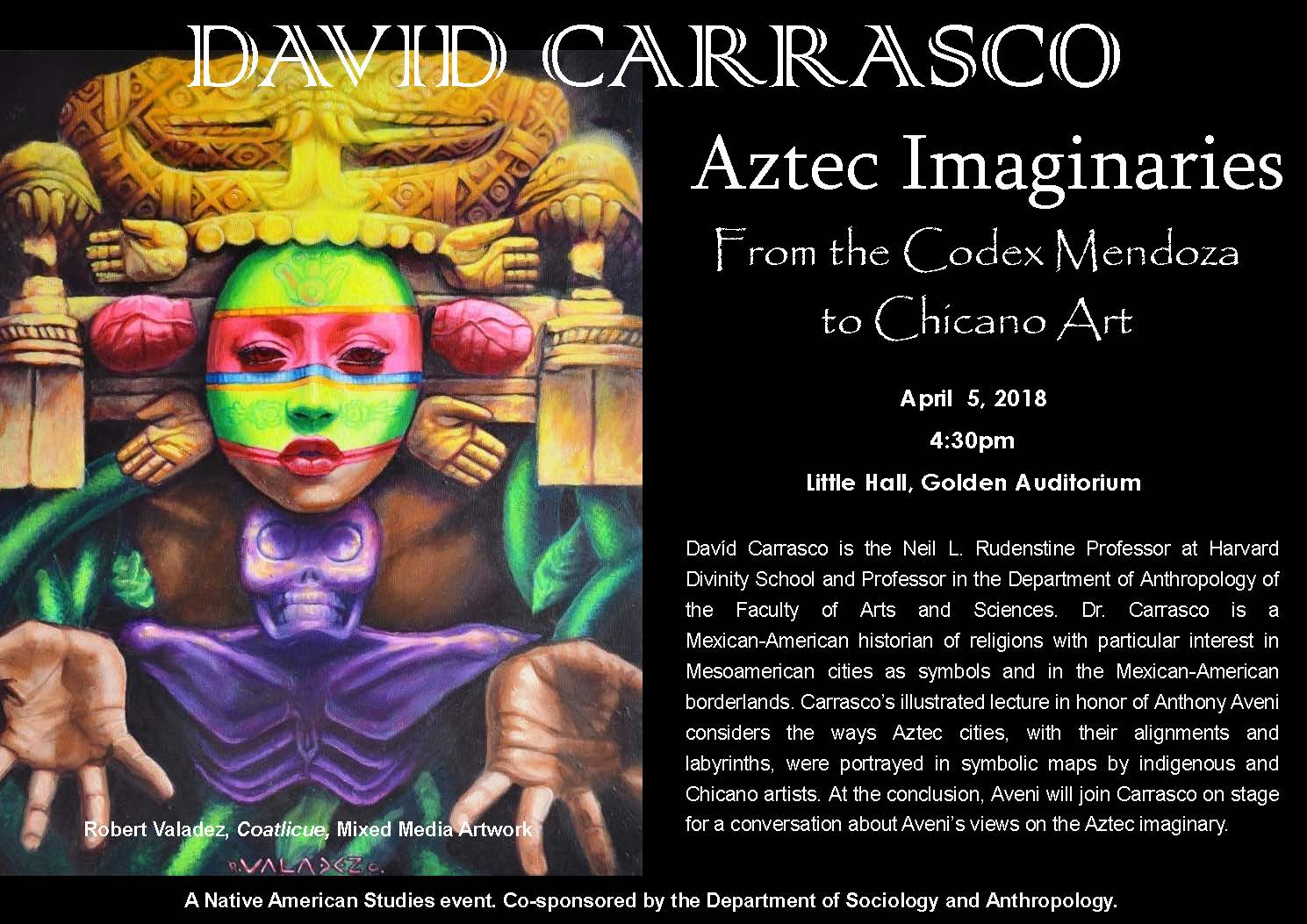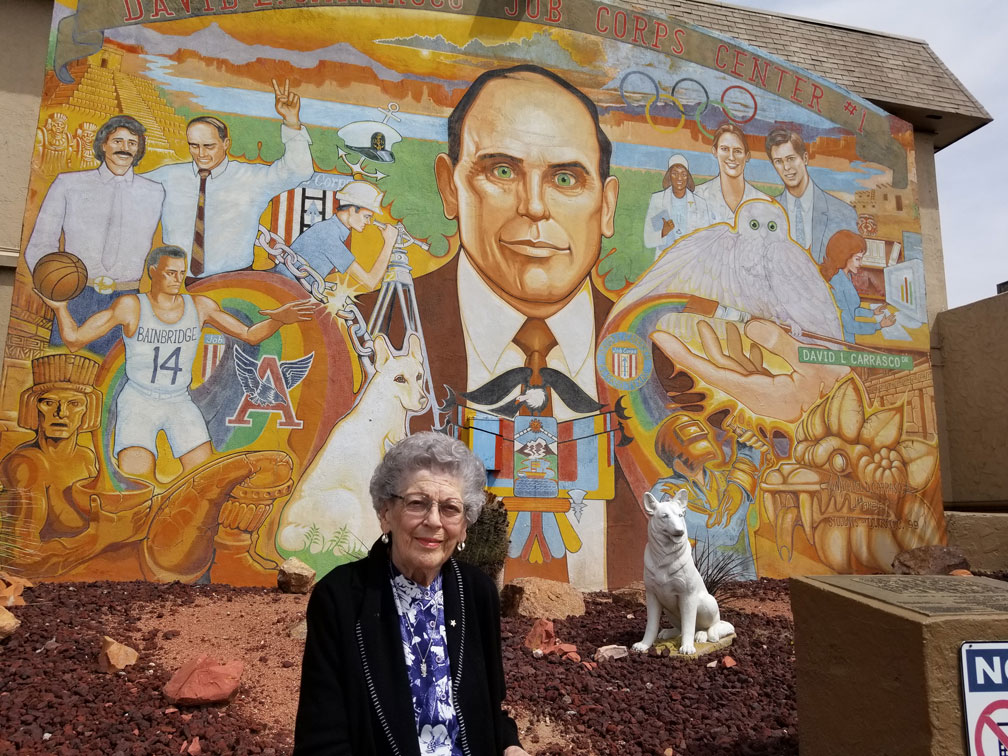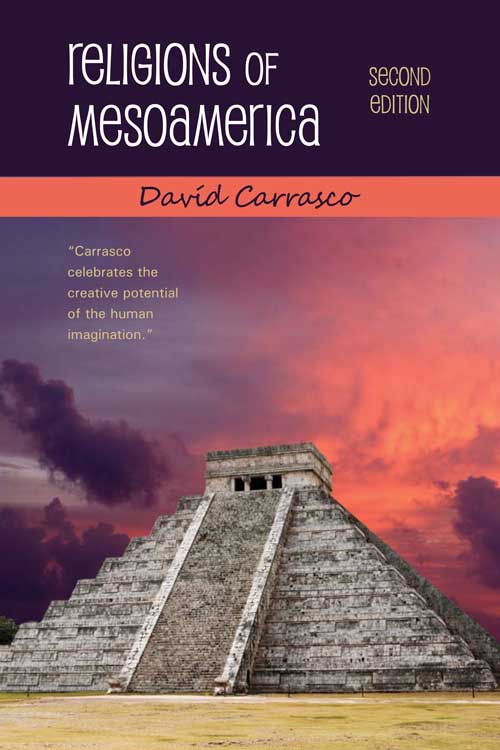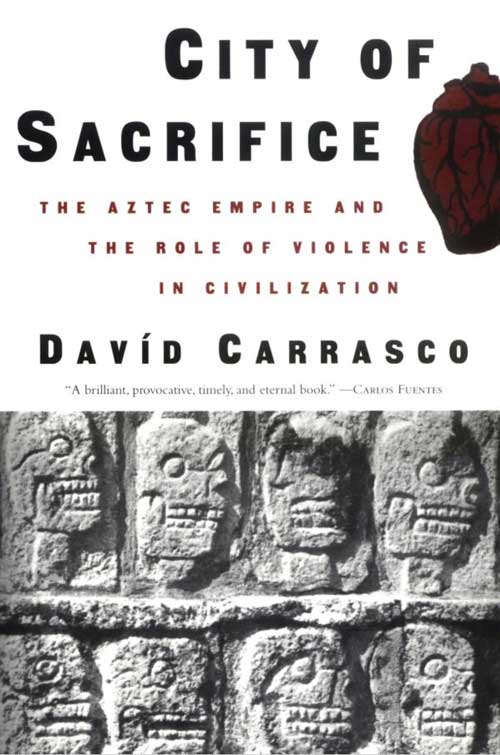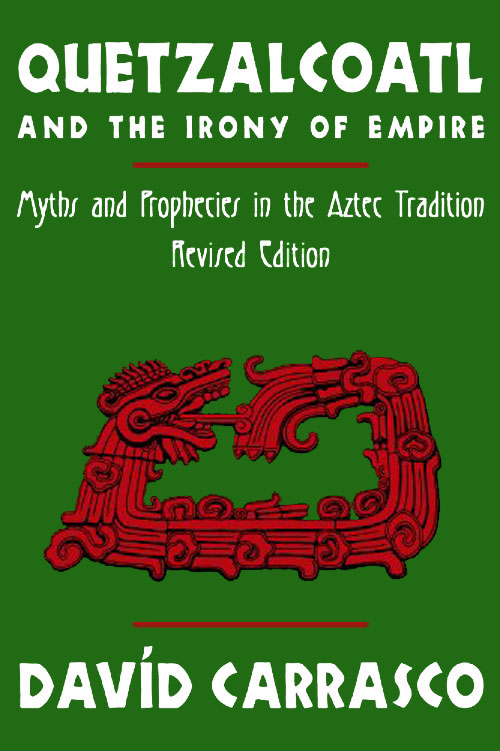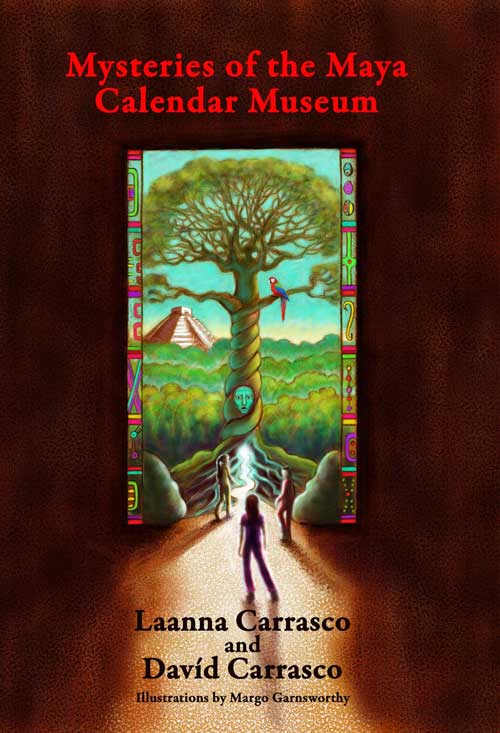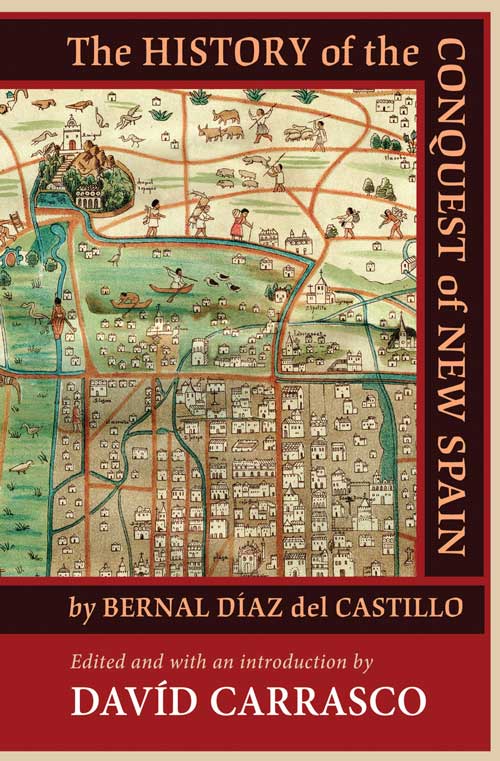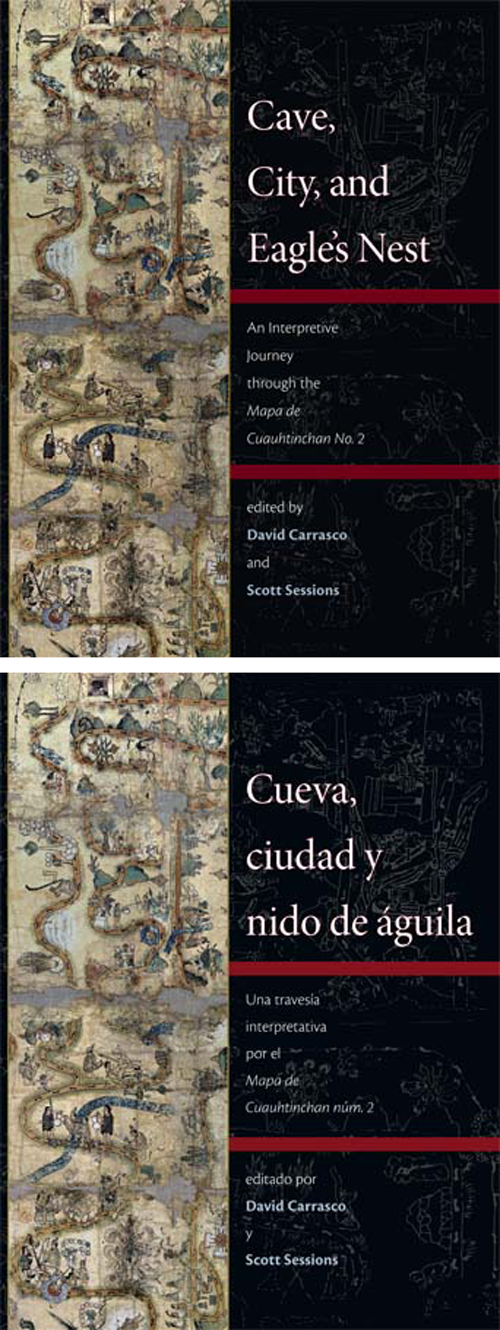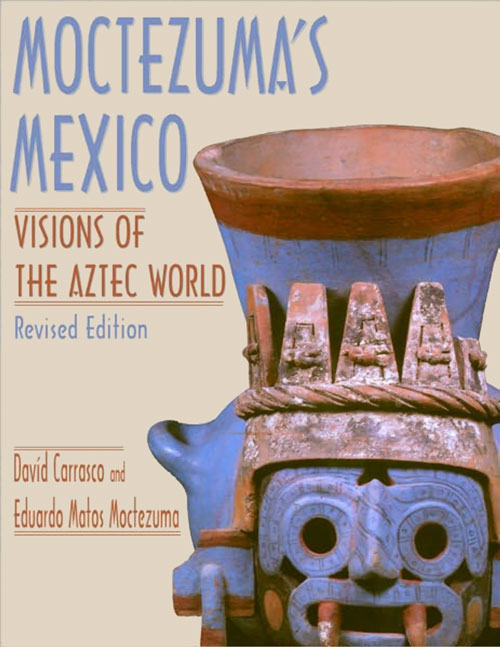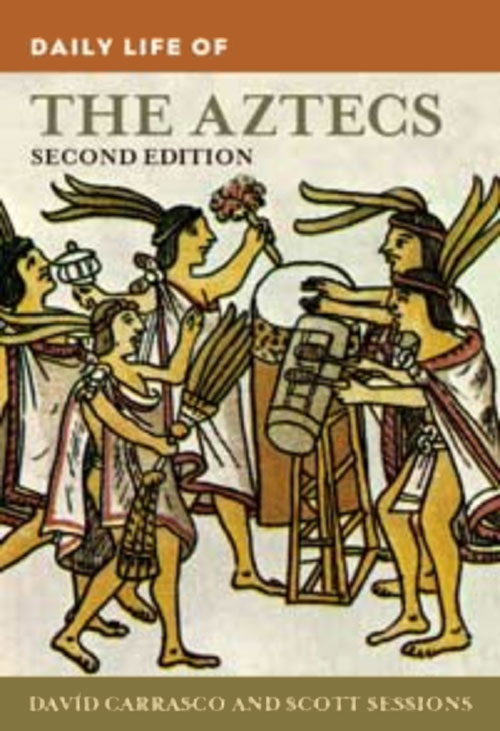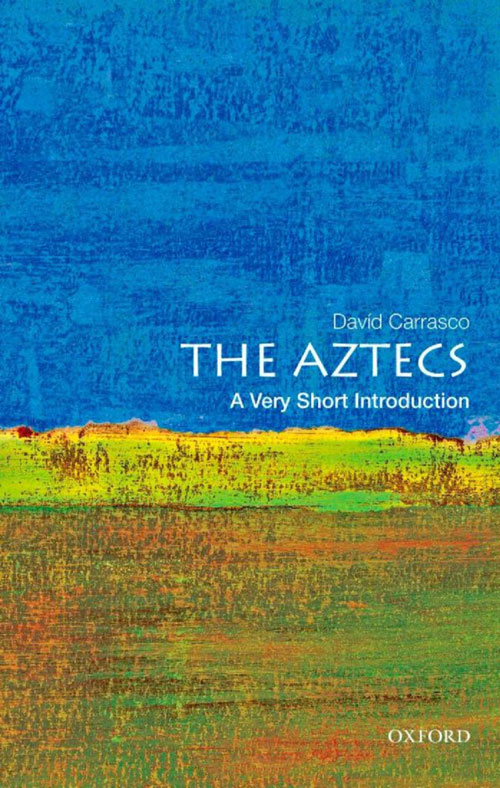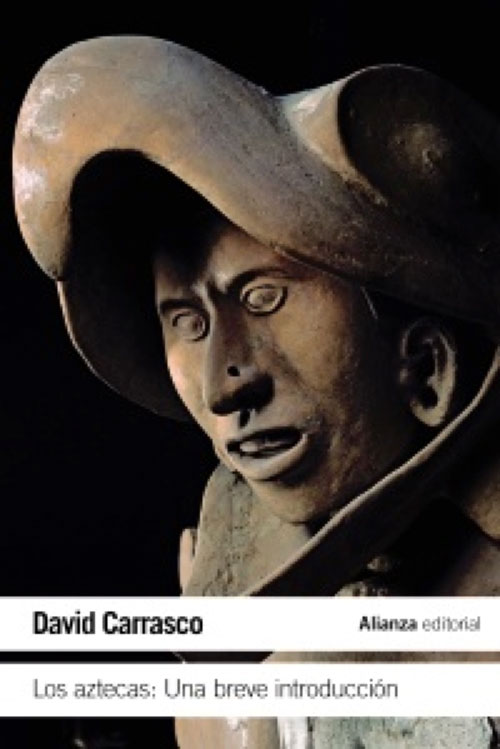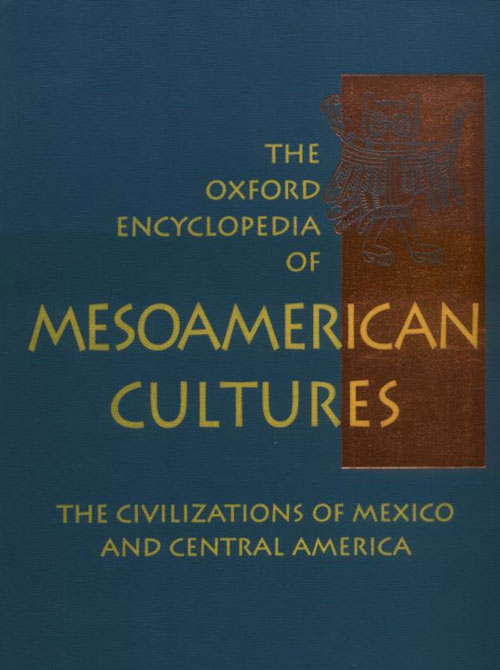Davíd Carrasco
Professor, Writer, Lecturer, Activist

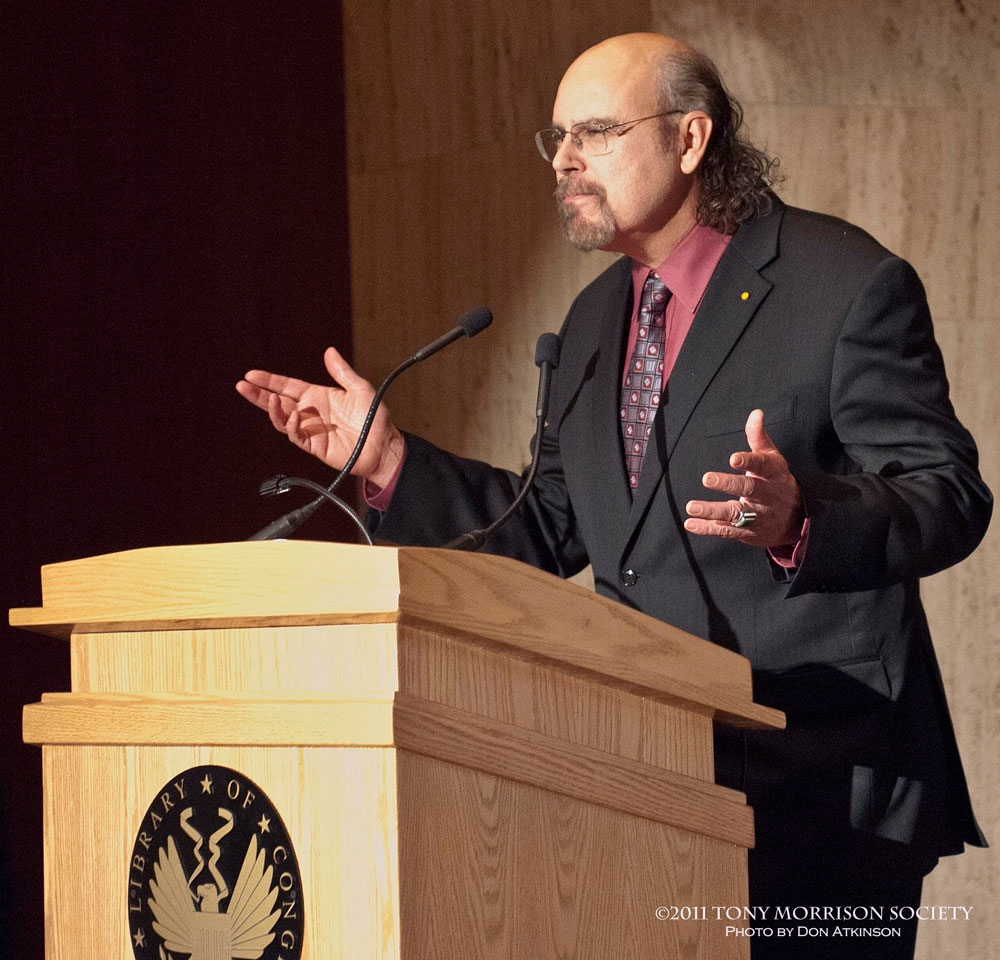 About Davíd
About Davíd
Davíd Carrasco is “a man of our time, a man of enormous vitality and value,” (Carlos de Icaza, the Ambassador of Mexico), who holds the inaugural Neil L. Rudenstine Professor of the Study of Latin America at Harvard University with a joint appointment at the Harvard Divinity School and in the Department of Anthropology of the Faculty of Arts and Sciences. Carrasco is an award winning author and editor and has received outstanding teaching awards from both the University of Colorado and Harvard University.
Carrasco's creative work in the history of religions has been lauded for its “existential oomph” which has resulted in the celebrated Cave, City and Eagle's Nest (with Scott Sessions) Gold Medal from Publishers of the West, and City of Sacrifice, lauded by Carlos Fuentes as a “brilliant, provocative, timely and eternal book”. He is a leading interpreter of Latino/a cultures and the executive co-producer of the film “Alambrista: The Director's Cut” which puts a human face on the ordeal of undocumented immigration into the United States.
Carrasco lectures widely in the United States and abroad and was awarded the Mexican Order of the Aztec Eagle for his contributions to understanding the history and cultures of Mexico.
News
My friend Toni Morrison wrote in her Nobel Prize lecture “We die. That may be the meaning of life. But we do language. That may be the measure of our lives.”
Toni has died, but the meaning of her life can be found in her language and her measure is beyond our knowing. I think the Mexicans measured her best when, on the day we arrived at the national university, they greeted her with signs that showed her photo below the words, “Toni Morrison Entre Nosotros” i.e. Toni Morrison Among Us.
Because of her grace and beauty, her family and friends, her language and her readers, she remains “entre nosotros.”
What is our task now in mourning her? To remember and act on what she taught us in The Bluest Eye, Sula, Jazz, Tar Baby, and God Help the Child! Combine the inspiration with the moral task ahead. In Love she taught us the wisdom of having African American spiritual allies to give us the chance to love what we have lost. In Song of Solomon she taught us how to fly above the white terror of history when she wrote “If you surrendered to the air, you could ride it” as she is now riding Home to paradise. She gave us the way forward in the final paragraph of her novel Paradise. A woman named Piedade or Compassion sees another ship of migrants arriving in America. They are “lost and saved, atremble” at what will greet them at the borderland of the shore. The final sentence is “Now they will rest before shouldering the endless work they were created to do down here in Paradise.”
She once told me, “You know, Davíd, the real story is that the people who were treated like beasts did not become beastly.” Our Beloved Toni, who gave us new knowledge and loved us through her writings, has gone to her rest and we must shoulder the endless work we were created to do down here in the Americas. To show A Mercy to one another.
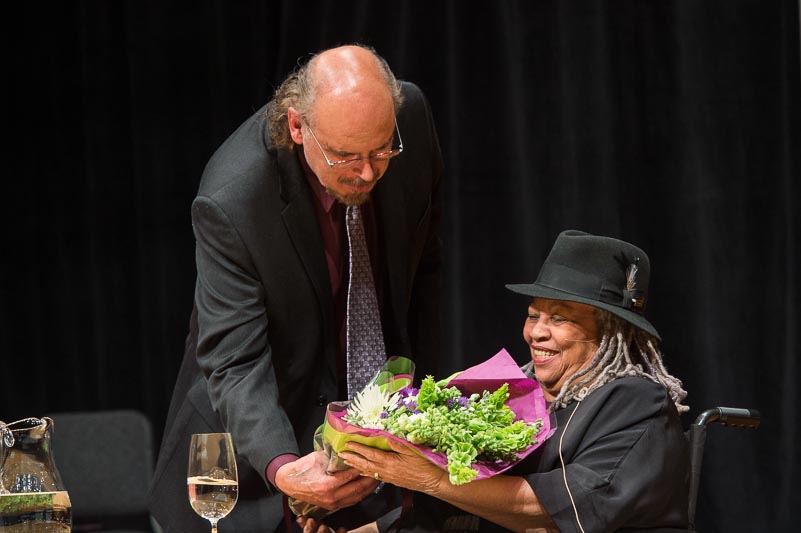
Carrasco is a cast member in new film "Toni Morrison: The Pieces I Am". In the film Carrasco tells of escorting Toni Morrison to Mexico City and also remarks on the religious dimensions of her novels. He attended New York City Premier of the film on Thursday, June 13th at the New York Public Library.
- Howie Movshovitz Review on KUNC in Denver
- Review in the Austin Chronicle
- Carrasco's contribution in the film quoted prominently in coverage by The Atlantic
- Carrasco and others featured in the film interviewed by The Wall Street Journal (paywall)
- A favorable review on The Independent
- An article on WBUR
- Official Trailer for Toni Morrison: The Pieces I Am
photos
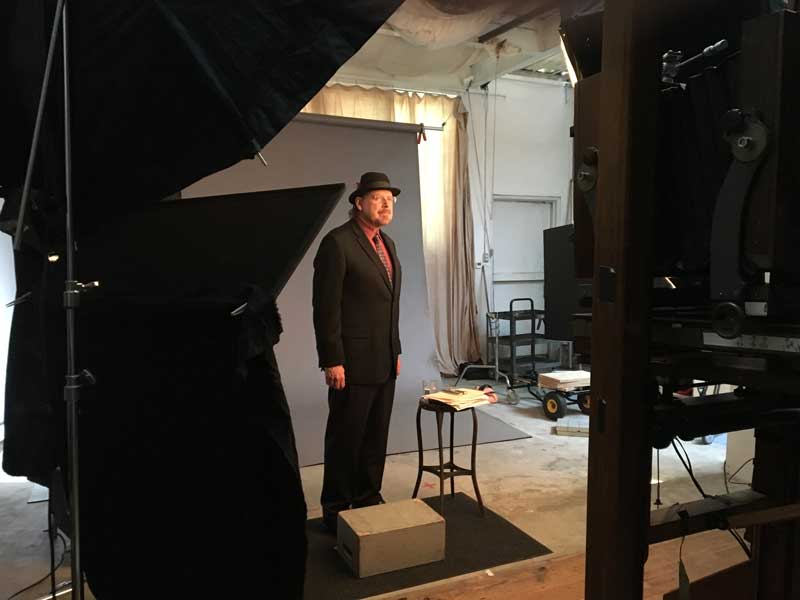
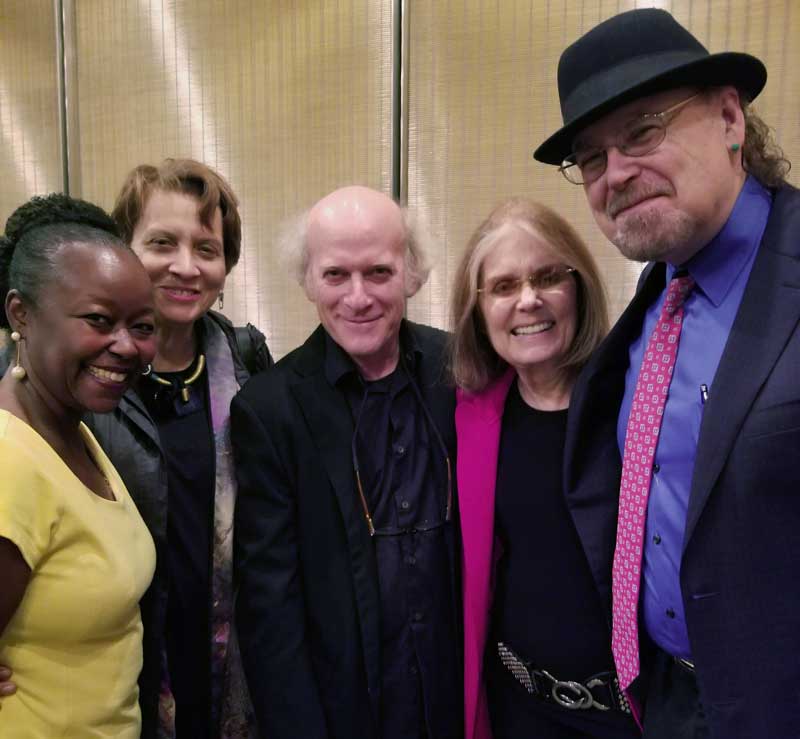
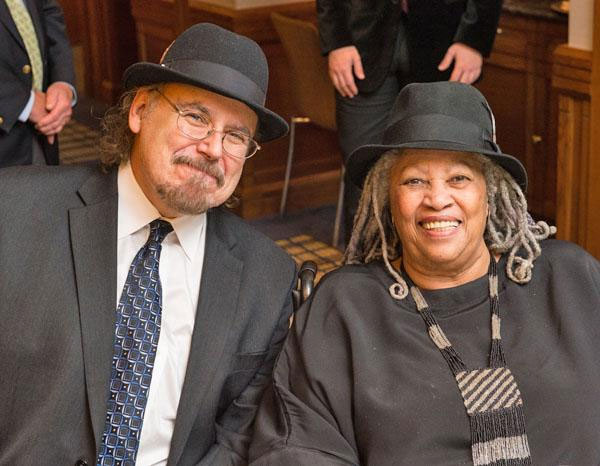
Davíd Carrasco gave the Alfonso Reyes Lecture "The Life and Three Voices of Carlos Fuentes" at Tecnologia de Monterrey University. Here he appears before a photo of Carlos Fuentes, Toni Morrison, Eduardo Matos Moctezuma and friends at the home of Carlos and Sylvia Lemus in 1995.
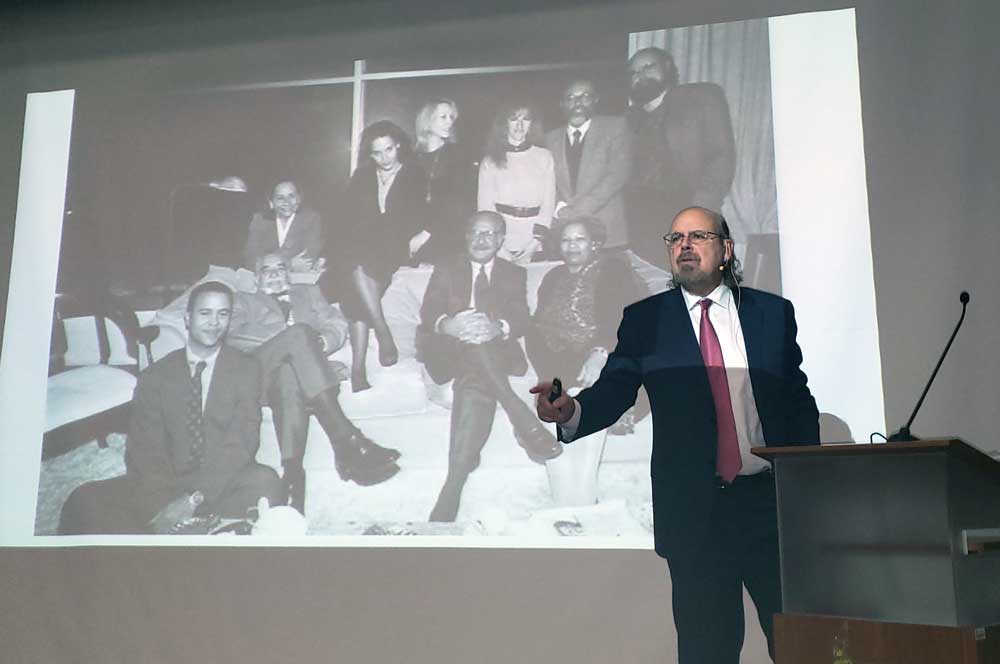
Carrasco will deliver the Cátedra Alfonso Reyes at Tec de Monterrey in March 2019.
The Harvard Divinity School website shares more on the upcoming PBS series including commentary on the following extended interview:
“I was thrilled to receive this message from a Boston 5th grade teacher about using "Mysteries of the Maya Calendar Museum," written by my daughter Laanna and me:
Hello Professor Carrasco,
Our fifth-grade class has enjoyed reading your book, “Mysteries of the Maya Calendar Museum.” We are going to the Magnificent Maya exhibit at the Peabody Museum at Harvard in two weeks as well. Just wanted to say thanks and if you know of any other age-appropriate learning materials for my class, please send them my way!
Ann-Marie Keltner, Park Street School, Boston
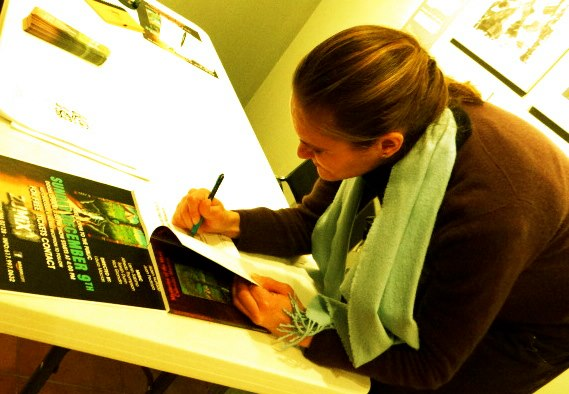
More coverage in American Indian Magazine of the upcoming four-part series “Native America,” from Providence Pictures airing on PBS this fall. Watch it on Tuesday evenings starting Oct. 23, 2018, from 9–10 p.m. ET.
Davíd Carrasco with Zuni farmer, scholar and river guide Jim Enote at the launch for PBS TV series “Native America” at the Television Critics Association Press Tour in Los Angeles. Enote and Carrasco are featured in several of the four episodes that will air starting October 23rd.
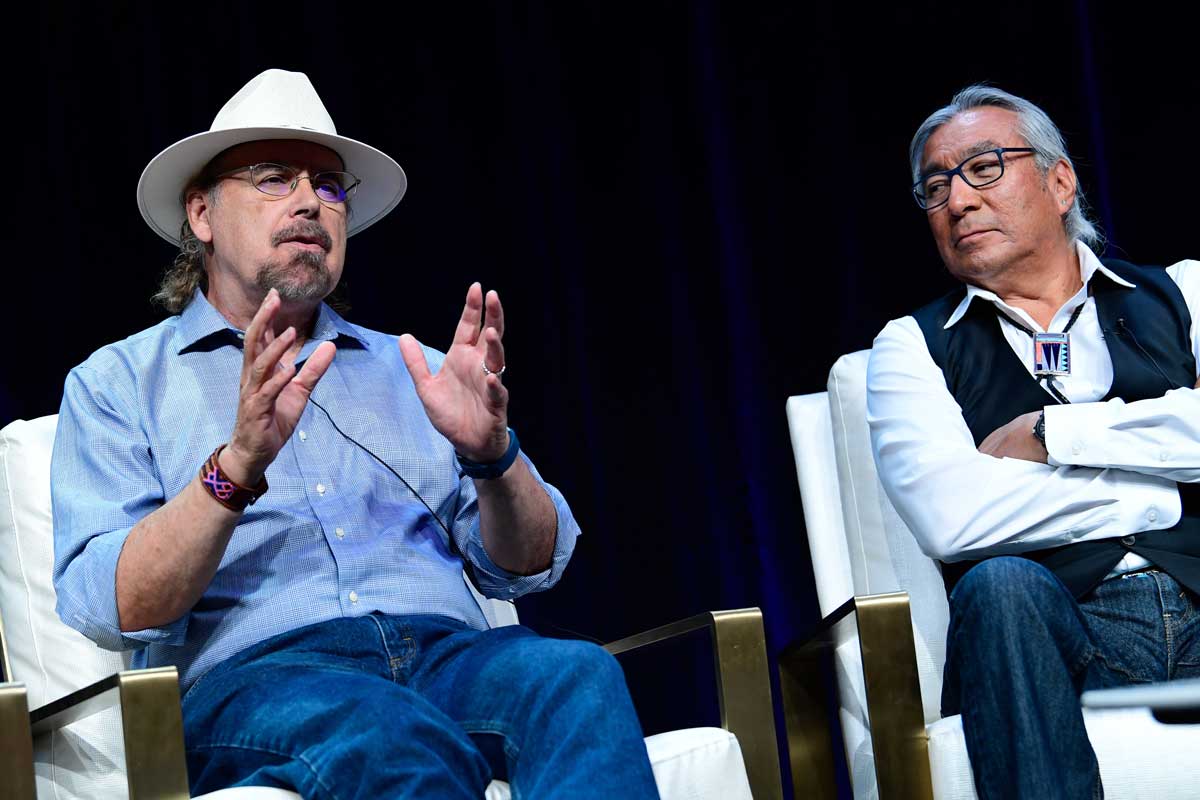
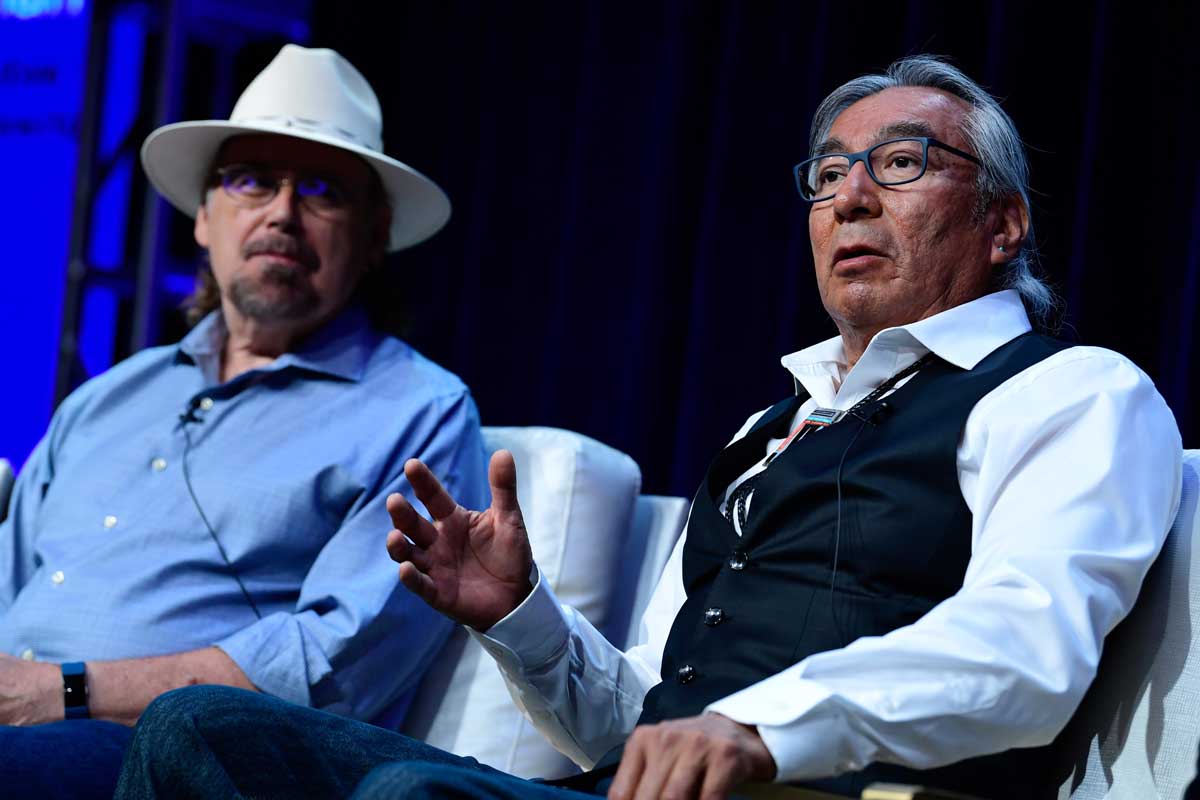
“I'm immersing myself in Toni Morrison's writings this summer. This task and pleasure is driven by the book project Professor Stephanie Paulsell, Mara Willard, and I are doing with Toni Morrison about the religious dimensions of her writings. This book, 'Goodness: Altruism and the Literary Imagination,' to be published by the University of Virginia Press, emerges from…continue reading
Davíd Carrasco is one of the faculty leaders in this new Executive Education Program, “Making Change” taking place this June 18-21 at the Harvard Divinity School.
Davíd Carrasco and Eduardo Matos Moctezuma spoke at Tec de Monterrey. Carrasco came on at minute 40 on the story of the return of Quetzalcoatl.
Carrasco interviewed by Dr. Mara Willard at the Berkeley Center for Religion, Peace & World Affairs at Georgetown University.
Harvard Gazette covers a weekly dialogue, “Quests for Wisdom: Religious, Moral, and Aesthetic Experiences in the Art of Living,” co-created by Carrasco and Professor Arthur Kleinman that looks at wisdom as it relates to how we experience the world, and the strategies we need to have a moral life amid uncertainty.
“…To recognize the seminal importance of [Eduardo Matos Moctezuma and Carrasco's] research, leading Harvard University scholars traveled to Mexico in October 2017 to inaugurate the Eduardo Matos Moctezuma Lecture Series.” Full article on Harvard Divinity School Site
Video on Facebook of Day of the Dead/Dia de los Muertos celebrations at Harvard's Peabody Museum of Archaeology and Ethnology curated by Carrasco and Mexican artist Mizael Sanchez.
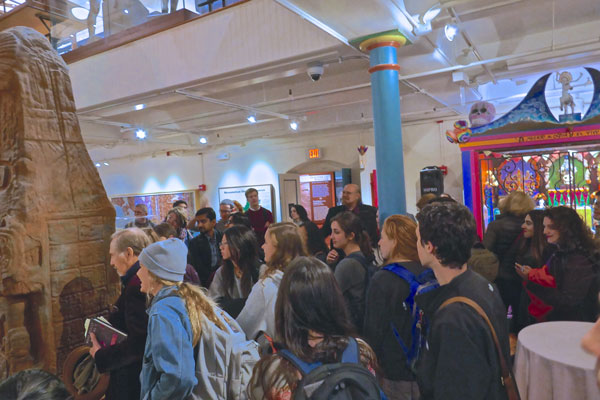
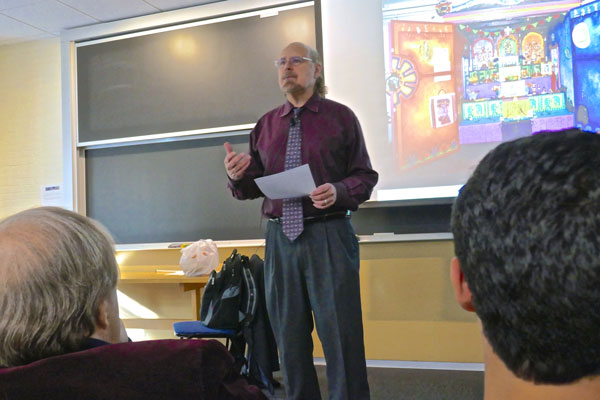
See Davíd Carrasco lead the way in inaugurating the “Eduardo Matos Moctezuma Lecture Series” in Mexico and Harvard. This is the first time in Harvard's almost 400 years that a lecture series in the name of a Mexican scholar has been launched.
The full event
The announcement (length 1:32):
Black/Brown Dialogues in the Future!
HDS Professor of the Practice of Public Philosophy Cornel West delivered the 2017 Convocation address “Spiritual Blackout, Imperial Meltdown, Prophetic Fightback,” on August 29, 2017.
Pay attention to the history of “Place”. What I find largely missing in the critical commentary about the terrible events in Charlottesville is the fact that this is the town and university where Thomas Jefferson, one of our Founding Fathers lived, wrote, owned slaves and produced mixed race offspring—largely based on his white raced privilege. Jefferson's language of “all men are created equal,” often quoted in the last several days, did not mean Africans or African Americans or Native Americans for that matter—nor Mixed Race people for that matter. That the riot (if Blacks had been the majority participants would this be referred to now as a “race riot?”) and killing of Heather Heyer took place in this Virginia town also points us back to this historical place as one place of the OFFICIAL origins of white supremacy in the United States. Paying attention to the “history of place” leads us to think harder about how old, deep and intractable white supremacy is, in the US story.
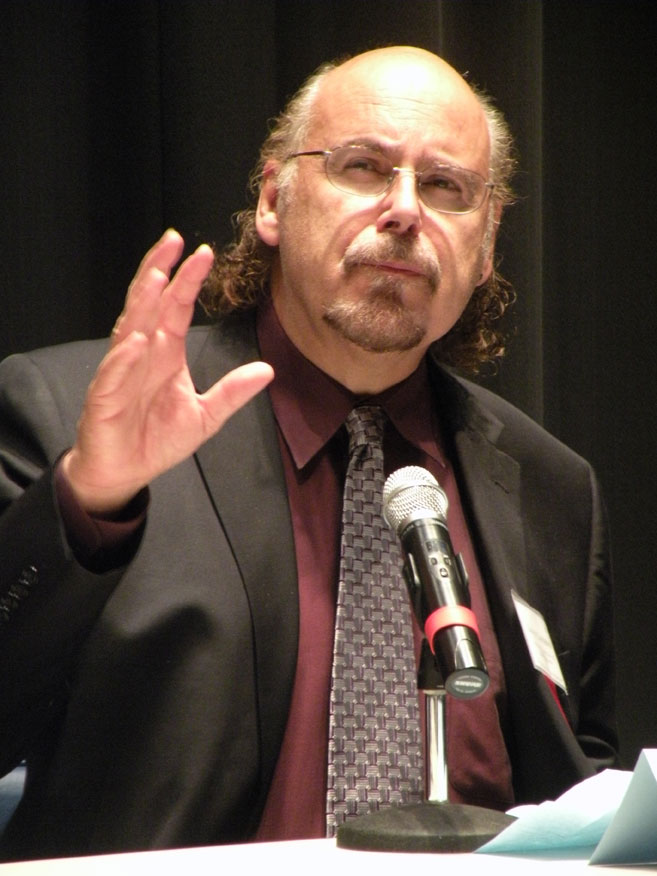
The Huffington Post published an account of Davíd Carrasco's response to an episode of Reza Aslan's show Believers on CNN.
Carrasco appears in an article in the Harvard Gazette following biologist Brian D. Farrell's lecture at the Harvard Museum of Natural History exploring the roots of consciousness.
Video of the lecture is on Facebook. Carrasco's remarks begin at 1:07:45
Some years ago African American philosopher Cornel West and Mexican American historian Davíd Carrasco met at Sanders Theater, Harvard University, to forge a public dialogue about “Brown and Black” social and intellectual partnerships to help the “new demography become a better democracy.” This phrase, made popular by Carrasco, and its possibilities are under aggressive political and psychological attack by changing policies and familiar forces in the US. Therefore the Black and Brown dialogues, alliances, and organizing between African American and Latino peoples are needed more than ever. Watching these videos will help the partnership develop in elevating and fruitful ways.
Whose Eyes on What Prize: A Black and Brown Discussion of Shades of Invisibility
John Phillip Santos wins Texas Medal of the Arts and shares his work with Davíd Carrasco on the lost Aztec Mapa.
